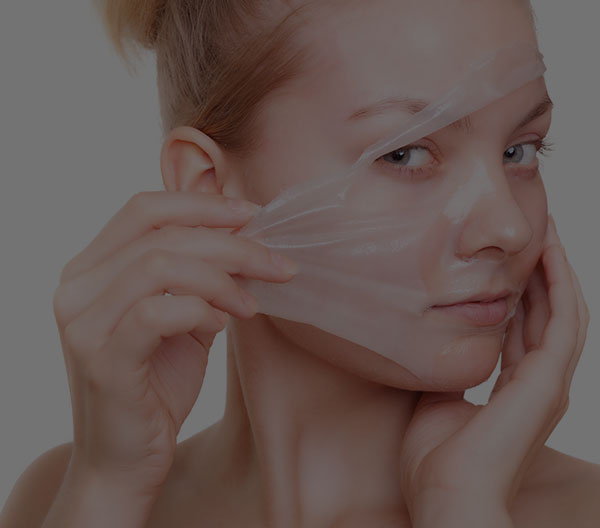Using powerful ingredients to treat exactly what your skin concerns are; skin peels offer a marvelous method when over the counter products and your skincare routine are not working to keep away acne, blemishes, dull skin and more. They can be tailored for your face and body so that you can get the clear and smooth skin that you have always wanted.
A chemical peel is a rejuvenating resurfacing solution that is applied to the skin by your medical practitioner and addresses various individual skin concerns. Peels remove dead skins on the outer layers of your skin, clearing away superficial signs of discolouration, damage and fine lines, and promoting new skin growth.

Most chemical peels are made of naturally occurring, carefully formulated acids and they are classified by their depth of penetration. They will contain specific concentrations of the acid depending on what issue you're looking to address with the treatment. The more challenging the skin issue, the more likely your medical practitioner is to recommend a deeper treatment.
The types of chemical peel for the face are incredibly varied, each type tailored to the needs of the patient. The peels are divided into a few different categories that address the depth of the treatment, light, medium, and deep chemical peels. The strength of the peel is determined both by the skin texture and tone, but by the skin problem that one is trying to address. Melasma and hyperpigmentation require a different type of peel from fine lines and deeper wrinkles. In addition, darker skin tones require more gentle chemical peels than lighter skin types.
Light chemical peels, or superficial peels, are formulated with mild peeling agents to gently exfoliate the skin. The lightest chemical peels have an exfoliating chemical solution that only affects the top layer of the skin (epidermis).
Medium-depth peels take 7–14 days to heal. They cause swelling that worsens for 48 hours after the treatment and may cause blisters.
Dermatologists do not usually use deep chemical peels. For issues affecting the deeper layers, laser therapy often provides better resultsTrusted Source. However, a dermatologist may recommend a deep peel if a person has:
If you want to look healthier and more youthful by enhancing your general complexion, a chemical peel can help. Looking youthful means more than smoothing out wrinkles and plumping sagging skin – it’s about that natural glow.
Chemical peels can work on different issues to other aesthetic treatments such as fillers and Botox (which are not used for skin tone, age spots, acne and general radiance). The beauty of chemical peels is that they can help with all these issues while also helping to smooth wrinkles and improve the texture and elasticity of the skin.
There is even a peel range available for those who have sensitive skin and rosacea. Their versatility makes chemical peels an invaluable tool for your beauty arsenal.
Lots of people express concern that a chemical peel will be painful. The deeper the chemical peel, the more likely you are to experience some discomfort, stinging or burning during the treatment - but any discomfort is minor and over quickly. Speak to us before your consultation if you're concerned about pain during your treatment, or if you think you have particularly sensitive skin - we will be happy to advise
The first part of your appointment will be given over to examining your skin, having an in depth conversation about your expectations, and letting you know what to expect during and after your treatment. It's especially important with chemical peel treatments to make sure that each patient is a good candidate and you may be asked to use topical skin preparation beforehand and in the Clinic.
